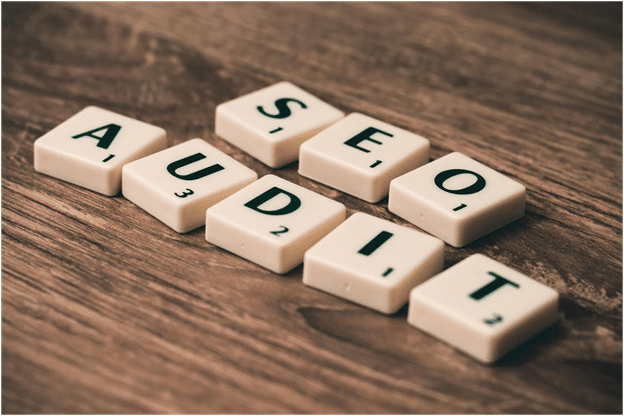Pittsburgh SEO Services Company, SEO Search Engine Optimization
Top 10 SEO Security Risks Every Marketer Should Be Aware Of
As a marketer, you must have heard about search engine optimization (SEO) to increase your business’s traffic and visibility. But have you ever taken time to reflect on the security implications of your SEO strategies and plans?
In the current world, hackers’ tactics cannot be underestimated, and your SEO strategy might be dangerous for your business without you knowing it.
1. Malware Infections
One of the biggest risks you face while working on SEO is malware on your computer. They break into websites to compromise data or embed nasty code within a site delivered to other site users. Should your site get hit, search engines like Google can label your website as a potential threat in their search results or even blacklist it.
How to Prevent It:
- Cybersecurity should be maintained using reliable cybersecurity plugins and software for malware scanning.
- Update all CMS, plugins, and themes to fix security flaws.
2. Website Defacement
Website defacing means replacing the content of your website with offensive or unconnected material. An attack like this hurts your brand reputation and negatively affects your SEO by affecting user experience and increasing bounce rates.
How to Prevent It:
Your CMS and admin passwords should be strong and unique.
- You can restrict user access levels so that the user can’t change the contents.
- Buy a web application firewall (WAF) to catch and block bad traffic.
3. SQL Injection Attacks
Cybercriminals commonly attack a website’s database through SQL injection attacks. These enable hackers to enter your database, manipulate it, and inject spammy links or content to harm your SEO rankings.
How to Prevent It:
- Prevent your database from injection attacks using parameterized queries.
- Seek the services of a cybersecurity expert to audit your site for weaknesses.
4. Spammy Backlinks
Another serious risk to your SEO health is spammy or toxic backlinks. Unethical competitors or hackers may link to your website with low-quality, irrelevant links, giving the impression that you’re engaging in black hat SEO.
How to Prevent It:
- You can track your backlink profile using Google Search Console or other third-party backlink analysis software.
- Instead, build high-quality organic backlinks to grow your domain authority.
5. Phishing Attacks
Hackers use phishing attacks to lure users into giving them sensitive information like login details or credit cards. However, if your website is compromised and used by a phishing scheme, it may even get blacklisted by search engines and may drastically affect your rankings.
How to Prevent It:
- Using SSL on your website enables HTTPS and secures user data.
- Train your team to identify phishing attempts, such as suspicious emails or links. This not only secures your website but also helps safeguard your business against wire fraud and other forms of cybercrime.
6. Content Scraping
Content scraping is when another site copies your content—often verbatim—and publishes it as its own. The problem comes when your scraped content ranks higher than the original content, which means it will start directing your organic traffic to itself, damaging your SEO performance.
How to Prevent It:
- Make use of tools such as Copyscape to discover if content scraping occurred.
- You can consider a couple of things: watermark images and include canonical tags to show ownership of your content.
7. DDoS Attacks
Distributed Denial of Service (DDoS) attacks are designed to bombard your website with traffic till it becomes unresponsive or shuts down completely. A site with slower or harder loading speeds means poor user experience and lower search engine rankings.
How to Prevent It:
- If you can’t afford to have your server down, invest in a DDoS protection service or a content delivery network (CDN) like Cloudflare.
- Update your server software and CMS, minimizing vulnerabilities.
8. Unsecured Web Forms
If you don’t secure your forms on your website – like those on the contact form, login page, or subscription form – they can become entry points for hackers. If cybercriminals were to access your forms, they could inject malicious code or get to your sensitive user data and damage your site’s SEO and reputation.
How to Prevent It:
- Leverage CAPTCHA or reCAPTCHA to prevent automated attacks.
- Take encrypted data transmission via HTTPS.
9. Keyword Stuffing by Hackers
Hackers sometimes write spammy or irrelevant keywords into your website content, meta descriptions, or tags. This practice can ruin the user experience and threaten search engines’ penalties for broken content quality rules.
How to Prevent It:
- Review your website’s content regularly, looking for signs that anyone has changed it without your express consent.
- Block editing access to your website’s backend.
10. Black-Hat SEO Attacks
Various black hat SEO attacks, including cloaking and hidden text, redirect your traffic to scarier-looking websites. And if you don’t get these tactics right, they can ruin your SEO rankings and penalize or ban your site by search engines.
How to Prevent It:
- Check your website’s SEO practices regularly to comply with the search engine rules.
- Running tools like Ahrefs or SEMrush to monitor your site’s health and traffic patterns is key.
Final Thoughts
SEO and security are two sides of the same coin. Nowadays, it’s easy to get lost in thinking, “How do I optimize my page for the keyword?” or “How can I get more backlinks?” while neglecting cybersecurity. This will cause your website to be hacked and all of your hard work to be thrown away.
The cost of repairing damage caused by a security breach is far higher than the effort used to prevent it. The key is to make SEO security a priority because it will help you achieve long-term success in the highly competitive digital marketplace.

Jon Crain has written hundreds of website design and marketing article blog posts.
He is the sole owner of Pittsburgh SEO Services LLC which is a small business in Pittsburgh PA that specializes in affordable wordpress websites and digital marketing campaigns. Jon Crain has a marketing degree specializing in digital marketing and holds multiple internet marketing certifications. Jon Crain has over 25 years of experience along with managing hundreds of website projects and marketing campaigns. He also has won a variety of awards over the years from Tribune Review, Post Gazette and other publications.

